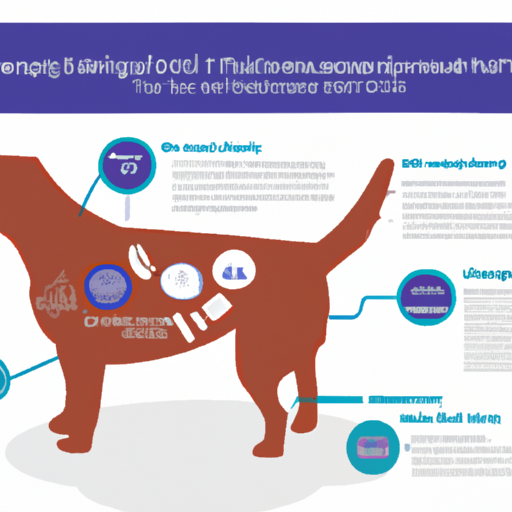As a caregiver to your furry friend, you are well aware that their health is as important as your own. In this piece, we delve into one of the common health issues in dogs: pancreatitis.
1. Understanding Pancreatitis
Pancreatitis is a condition where the pancreas becomes inflamed. The pancreas, a vital organ located near the stomach, plays a crucial role in digestion and insulin production. When your dog’s pancreas becomes inflamed, it disrupts these vital functions, causing discomfort and potential health risks.
2. The Causes of Pancreatitis
There are several reasons why your dog might develop pancreatitis. These include:
-
High-fat diet: Dogs that consume a diet rich in fats are more prone to developing pancreatitis. This is especially true during holiday seasons when dogs might sneak in some fatty human food.
-
Obesity: Overweight dogs are at a higher risk of developing pancreatitis.
-
Medications: Certain medications have been linked to pancreatitis in dogs.
-
Metabolic disorders: Conditions like diabetes or hypothyroidism can also increase the risk of pancreatitis.
| Risk Factors | Details |
|---|---|
| High-fat diet | Too much fatty food increases the risk |
| Obesity | Overweight dogs are at a higher risk |
| Medications | Certain drugs can cause pancreatitis |
| Metabolic disorders | Conditions like diabetes increase the risk |
3. Recognizing the Symptoms
Identifying pancreatitis early can help prevent complications. Here are some symptoms you should keep an eye out for:
- Loss of appetite
- Vomiting or diarrhea
- Abdominal pain
- Fever
- Lethargy
4. Prevention and Treatment
Prevention is always better than cure. Here are some ways you can help prevent pancreatitis in your dog:
-
Maintain a balanced diet: Avoid feeding your dog fatty foods. Instead, opt for a balanced diet that meets all their nutritional needs.
-
Regular exercise: Regular physical activity can help keep your dog’s weight in check, reducing the risk of pancreatitis.
If your dog is diagnosed with pancreatitis, treatment will depend on the severity of the condition. This may include hospitalization, medications, and a change in diet.
5. Frequently Asked Questions
Q: Can pancreatitis in dogs be cured?
A: With early detection and proper treatment, most dogs recover fully from pancreatitis.
Q: Can pancreatitis be prevented?
A: While there’s no surefire way to prevent pancreatitis, maintaining a healthy diet and regular exercise can reduce the risk.
Q: Can a dog live a normal life after pancreatitis?
A: Yes, once treated, most dogs can live a normal, healthy life post-pancreatitis.
In conclusion, while pancreatitis can be a serious condition, early detection and appropriate treatment can ensure your dog bounces back to its playful, happy self. As a caregiver, staying informed and vigilant is the key.



